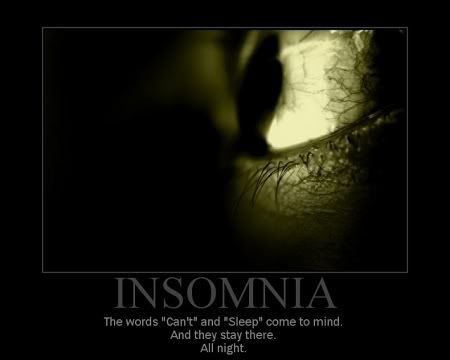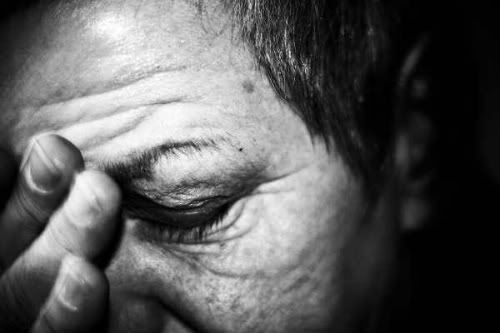A deputy sheriff trying to make his way “up the ladder” met the Peter Principle when he tried to hold down his job and also teach at two universities (one of them mine – in my deparment) separated by a 3-hour drive. Somewhere along the way his coping strategies did something that caused an investigation at both the County and City level. He was allowed to tell people he’d resigned from the Sheriff’s office but let’s just say it caused some issues.
Motley Moose – Archive
Since 2008 – Progress Through Politics
mental health
A View From the Swamp – WTH Have I Done?
So I’ve been here at my parents house in the swamps of Louisiana for almost a month now.
For those new to the View From the Whatever – I lived on my broken down but eventually sailible boat in Oregon until just before Christmas. I had to come home because I needed help I just couldn’t find in Oregon and my condition was deteriorating.
But it’s been hella weird being here – and I really miss my boat.
So – my parents are “comfortable” (NOT wealthy by any means) FOXbot birthers. Yeah, I’m not kidding. My family was military – Dad was Army, I was briefly Active Duty Navy until a medical discharge took me out – before I could score any awesome benefits or impress Dad.
But that’s not important right now – it’s this other thing I may have mentioned over at the Orange place in my series…
Sleepless: A Lifetime of Insomnia

 I’m not literally sleepless.
I’m not literally sleepless.
That’s not how it works, of course.
Everyone sleeps.
Eventually, anyway.
I’ve been meaning to write a diary about insomnia, but I had intended to do it first from a clinical perspective for the Mental Health Awareness group. I thought a personal account might be interesting to some, though, as a primer of sorts – or for a strange-ish perspective.
Insomnia is “common,” but mine is not. My insomnia was diagnosed long before any of my other issues – that’s because it is a rather rare form of insomnia. It has been present since I was an infant and a part of my reality for as long as I can recall. It is called idiopathic insomnia, seemingly to reflect the fact that it has no known cause, and is found in less than one percent of the population.
HIV / AIDS and Mental Health: An Overview

 I’d like to discuss HIV/AIDS as it pertains to mental health, since I think it’s a topic that deserves more emphasis. I think it’s fairly intuitive that living with a disease like HIV/AIDS would be likely to have an adverse impact on one’s mental health. This goes for living with a lot of illnesses, especially life-threatening ones, but I believe there is still a special social stigma attached to HIV/AIDS which makes the reality of coping with it in a sometimes cold and judgmental world all that much harder. For the purposes of this diary, I will not be delving heavily into signs/symptoms or statistics for the populations affected. Rather, I want to focus on the mental health concerns that go along it.
I’d like to discuss HIV/AIDS as it pertains to mental health, since I think it’s a topic that deserves more emphasis. I think it’s fairly intuitive that living with a disease like HIV/AIDS would be likely to have an adverse impact on one’s mental health. This goes for living with a lot of illnesses, especially life-threatening ones, but I believe there is still a special social stigma attached to HIV/AIDS which makes the reality of coping with it in a sometimes cold and judgmental world all that much harder. For the purposes of this diary, I will not be delving heavily into signs/symptoms or statistics for the populations affected. Rather, I want to focus on the mental health concerns that go along it.
As one might expect, depression and anxiety are prevalent amongst people with HIV/AIDS. The psychological strain of dealing with the condition itself can be intense, and the added burden of trying to cope with social stigma only increases the risk of developing mental health problems. Common responses to an initial diagnosis of the disease are denial, anger, sadness/depression, fear/anxiety, and general stress. Even for those who have never suffered from a life-threatening illness, I think it’s pretty easy to understand why someone would have those reactions. Sympathizing is, perhaps, a relatively simple task – truly empathizing is not. It is impossible for someone who does not have to live with HIV/AIDS to “understand” how these patients feel.
Spotlight Mental Health: Posttraumatic Stress Disorder

We have all heard poignant stories about the many people across the country and around the world suffering from posttraumatic stress disorder. It can be a crippling condition, which can lead to a plethora of other problems, from generalized anxiety to depression to suicide. PTSD is a disorder affecting many Americans, and rates of PTSD have increased over the past several years due to US involvement in wars overseas. Many of our soldiers return home presenting with symptoms of this extraordinarily complicated and frequently debilitating disorder.